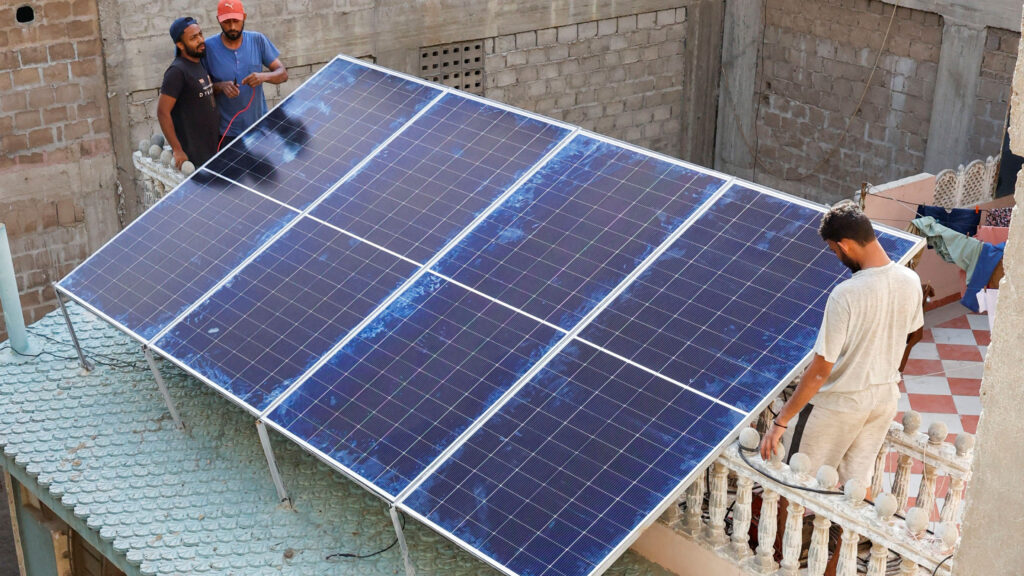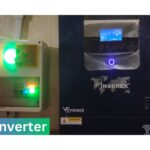As energy costs continue to rise and environmental concerns grow, more homeowners and businesses are turning to solar installation as a viable energy solution. Solar energy is a clean, renewable source of power that helps reduce your reliance on traditional electricity grids, saving money and lowering your carbon footprint. Whether you’re looking to cut down on energy bills or contribute to a greener planet, installing solar panels is a smart investment for the future.
In this guide, we’ll explore the benefits, the process, and how to choose the right solar company to meet your needs. Let’s get started by diving into why solar installation is becoming a popular choice for so many people.
Benefits of Solar Installation
Switching to solar installation offers numerous advantages for both homeowners and businesses. Here are some of the key benefits:
Reduced Energy Bills: Once your solar panels are installed, they harness free energy from the sun, significantly lowering your monthly electricity costs. Depending on your location and the size of your system, solar panels can potentially eliminate energy bills altogether.
Environmental Impact: Solar energy is a clean, renewable resource that produces no harmful emissions. By opting for solar installation, you’re reducing your carbon footprint and contributing to a healthier environment.
Increased Property Value: Homes and buildings with solar energy systems often have higher property values and are more attractive to buyers. A solar installation can be a long-term investment that boosts the overall market value of your home.
Long-term Savings: While the initial cost of installing solar panels can be high, the long-term savings on energy bills often offset this cost. Additionally, many governments offer tax credits, rebates, and incentives that can further reduce the upfront investment.
Energy Independence: With solar panels, you’re less dependent on traditional power grids and vulnerable to rising energy prices. In areas with frequent power outages, a solar system with battery storage can ensure a reliable energy source even during blackouts.
These benefits make solar installation not only a financially smart choice but also an environmentally responsible one.
The Process of Solar Installation
Understanding the solar installation process can help you make informed decisions. Here’s a step-by-step breakdown of how it typically works:
Site Assessment and Consultation: The first step is a thorough site assessment by a solar company. A professional will visit your property to evaluate factors like roof size, angle, and sunlight exposure. They will also discuss your energy needs and goals to determine the right solar system for you.
System Design: After the assessment, the solar company will design a system tailored to your property. This includes determining the number of solar panels, the type of inverter, and the potential placement of the panels to maximize efficiency.
Permits and Paperwork: Before installation can begin, the necessary permits must be obtained. This process may involve local government and utility companies. Your solar provider will typically handle this paperwork, ensuring all regulations are met.
Installation: Once the permits are approved, the actual installation begins. This step usually takes 1-3 days depending on the system’s size. The installation team will mount the solar panels, connect wiring, and install an inverter to convert solar energy into usable electricity for your home or business.
Inspection and Approval: After the installation is complete, a final inspection is required by local authorities and your utility provider. This ensures that the system complies with local regulations and safety standards. Once approved, the system is ready to be activated.
Activation and Monitoring: After passing inspection, the solar company will activate your system. Many modern solar installations come with monitoring tools, allowing you to track energy production in real-time. You can see how much energy your system is generating and how much you’re saving.
The process may seem lengthy, but working with an experienced solar installation company ensures everything runs smoothly and efficiently.

Choosing the Right Solar Installation Company
Selecting the right company for your solar installation is crucial to ensure a smooth process and long-term success. Here are some tips to help you choose wisely:
Experience and Reputation: Look for a company with a solid track record and years of experience in solar installations. Check online reviews, testimonials, and any certifications they may have, such as NABCEP (North American Board of Certified Energy Practitioners) certification. A reputable company will be transparent about their previous projects and client satisfaction.
Warranties and Support: Ensure the company offers strong warranties on both the solar panels and the installation itself. A reliable warranty indicates the company’s confidence in their products and services. Many companies also provide ongoing customer support to address any post-installation issues.
Custom Solutions: Every property is unique, so a one-size-fits-all approach to solar installation won’t deliver the best results. Choose a company that customizes solar solutions based on your specific energy needs, roof type, and budget.
Licensing and Insurance: Verify that the solar installer is licensed and insured. This is important not only for legal reasons but also for your peace of mind in case of any accidents or system malfunctions during installation.
Incentive and Financing Guidance: The right solar company will help you navigate financial incentives, rebates, and tax credits. They should be knowledgeable about local and federal programs that can help offset the costs of installation. Additionally, many companies offer financing options to make solar more accessible.
Choosing a trustworthy solar installation company ensures that you get the maximum benefit from your solar system, both in terms of energy savings and overall system longevity.
AQs About Solar Installation
Here are some frequently asked questions (FAQs) about solar installation to help you better understand the process and its benefits:
- How much does solar installation cost?
The cost of solar installation varies depending on factors like the size of your system, your location, and your energy needs. On average, a residential solar system can range from $10,000 to $30,000 before incentives. However, government rebates, tax credits, and financing options can significantly reduce this cost.
- How long does it take to install solar panels?
The actual installation process typically takes 1-3 days. However, the entire process, including design, permitting, and final inspections, can take anywhere from a few weeks to a couple of months depending on local regulations and your solar provider.
- How much money can I save with solar panels?
Savings vary depending on your energy usage, local electricity rates, and the size of your solar system. Most homeowners can save 50-100% on their electricity bills, and many achieve payback on their investment within 6-10 years.
- What happens if my solar panels produce more electricity than I use?
Many areas offer net metering, where excess energy produced by your solar system is sent back to the grid in exchange for credits. These credits can be used to offset future energy consumption.
- How long do solar panels last?
Most solar panels come with warranties of 25-30 years and can continue to produce electricity beyond that. The efficiency of the panels may gradually decrease over time, but they are built to last for decades.
Conclusion
Solar installation offers numerous benefits, from reducing your energy bills to helping the environment by using clean, renewable energy. With technological advancements, government incentives, and long-term savings, it’s no wonder more homeowners and businesses are making the switch. The process, while involving several steps, is straightforward when guided by a reputable solar installation company. By choosing the right provider and system for your needs, you can enjoy energy independence and contribute to a more sustainable future.




















